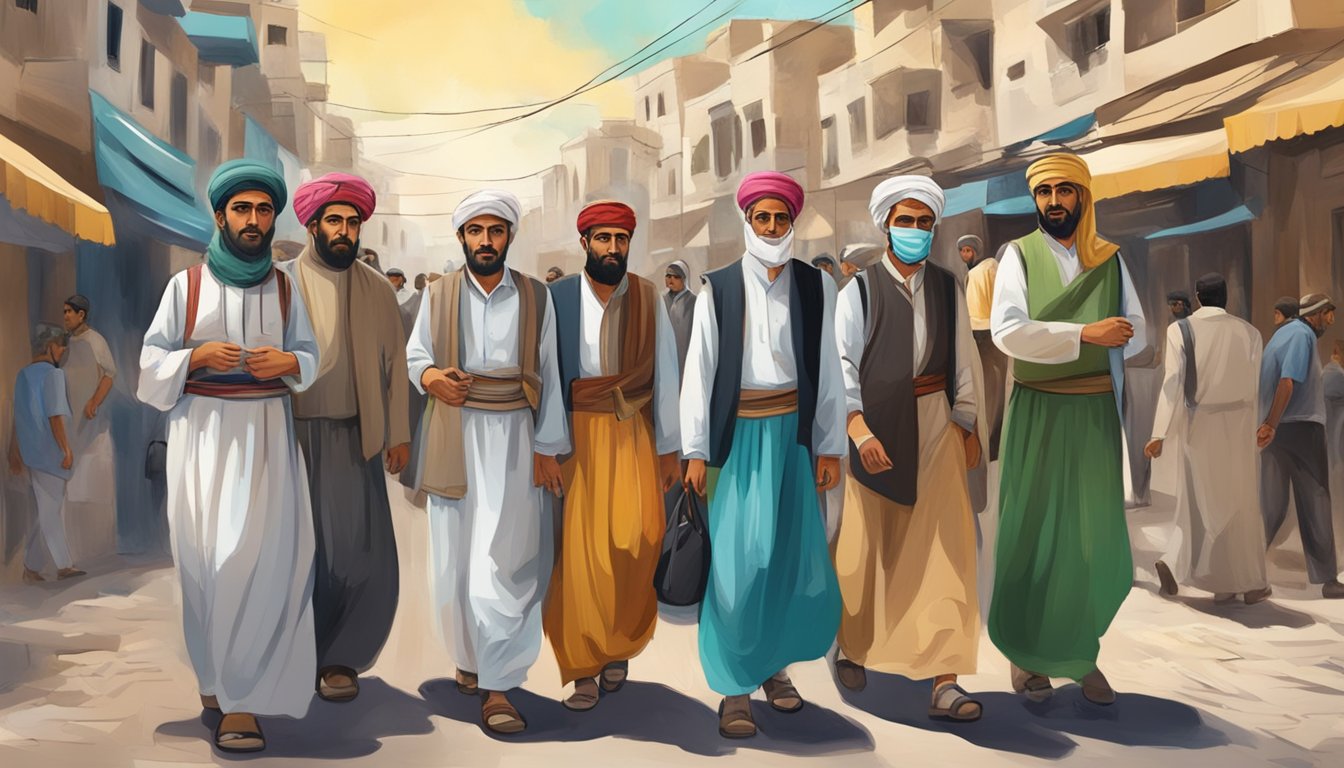Don’t Miss Out On This Unique Astrological Opportunity
Are you tired of spinning your wheels and getting nowhere? Simply put, you’re out of sync: you’re out of alignment with your astral configuration.
But: there’s a kind of map that can help you reclaim your alignment. Think of it as your own personal blueprint to success and happiness: a blueprint that will help you live your most amazing life.
Get started here.
As Syria stands at a crossroads following the collapse of Bashar al-Assad’s regime, the Alawite community, once a staunch ally of the fallen government, finds itself grappling with a future shrouded in uncertainty and fear.
Historically, Alawites, a minority Islamic sect, were closely linked to Assad’s rule, and now they face an anxious reality.
With the regime’s collapse, many Alawites fear retribution from rival factions, while others seek paths toward reconciliation in a fractured nation.
As they navigate this uncertain landscape, some draw parallels to other conflict zones where communities have struggled to rebuild—just as bibles bring hope to Ukraine, offering solace and resilience amid turmoil.
The Alawites now face pressing choices that will shape their future in post-Assad Syria.
The Cultural Significance of Khubeiza
In Syria’s coastal region, a dish known as khubeiza—a sautéed preparation of a kale-like plant with onions, garlic, and salt—carries deep cultural significance for the Alawite people.
Folklore traces its origins to the community’s struggles during the oppressive Ottoman era, when khubeiza represented their limited food sources.
Hafez al-Assad, also an Alawite, rose to power in 1971 with promises of lifting his people out of poverty and hunger.
Fast forward to today, however, and the situation in Qardaha, Assad’s hometown, starkly contrasts those promises.
The town is marked by dilapidated buildings where families endure persistent blackouts and a water supply that trickles in for just thirty minutes each week.
Many residents, like Mazen al-Kheir—a local anaesthetist—voice their frustrations, noting that the wealth accumulated during the Assad years was funneled only to those who supported the regime, leaving the majority of Alawites in severe economic distress.
Fear and Uncertainty After the Regime’s Fall
During Assad’s rule, expressing dissent within the Alawite community was particularly risky.
Al-Kheir remarked that it felt safer to voice concerns about the regime outside of family circles than within them.
Now that the regime has crumbled, a sense of fear lingers among the Alawite populace.
In the wake of the regime’s fall, Qardaha erupted in public criticism, with the statue of Hafez al-Assad being toppled amid the new tensions.
Patrolling the streets were fighters from Hayat Tahrir al-Sham (HTS), an Islamist group, creating an atmosphere rife with anxiety.
As they desecrated a mausoleum built in memory of Assad, many Alawites began to worry about potential backlash for their past affiliations.
One resident, who requested anonymity and is referred to as Olga for safety, expressed her discomfort witnessing these celebrations.
Although HTS initially proclaimed a commitment to respecting the rights of Alawites and other religious minorities, Olga remained skeptical.
She and her family fled Qardaha as HTS approached the capital, unsure how the new regime would view their identity.
Their journey to safety was fraught with fear, as they navigated through HTS checkpoints.
Even though HTS publicly assured respect for minority rights, Olga fearfully contemplated the possibility of oppression under a different form of rule.
She worried about her freedom to express her beliefs and preserve her personal lifestyle in this shifting landscape.
Tragically, the realities of this transition hit close to home; upon returning to work, she discovered that her office had been vandalized, a stark reminder of the risks associated with her position as a female judge.
Navigating a Complex Future
Historically, Assad leveraged the fear of extremist groups to ensure loyalty from the Alawite community.
Despite many Alawites harboring no affinity for Assad, they remained wary of the opposition’s potential hostility.
The fear of retribution and violence from rebel groups lingered throughout the civil war, compounded by the stigma attached to not serving in the military.
In this atmosphere of uncertainty, Ali, a 31-year-old engineer, has had to keep a low profile to dodge conscription—an issue many Alawites faced during the protracted conflict.
He confided that, despite his desire to join in the celebrations marking the regime’s fall, the looming threat of violence held him back at home.
Still reeling from years of conflict, the Alawite community clings to the hope that their rights will be honored by any new governing forces.
Ali expressed a longing for understanding from others regarding their experiences and a vision for a future where they are treated equitably alongside the wider Syrian population.
As Syria evolves, the Alawites are left to navigate a complex landscape marked by anxiety and uncertainty.
Source: The Guardian



